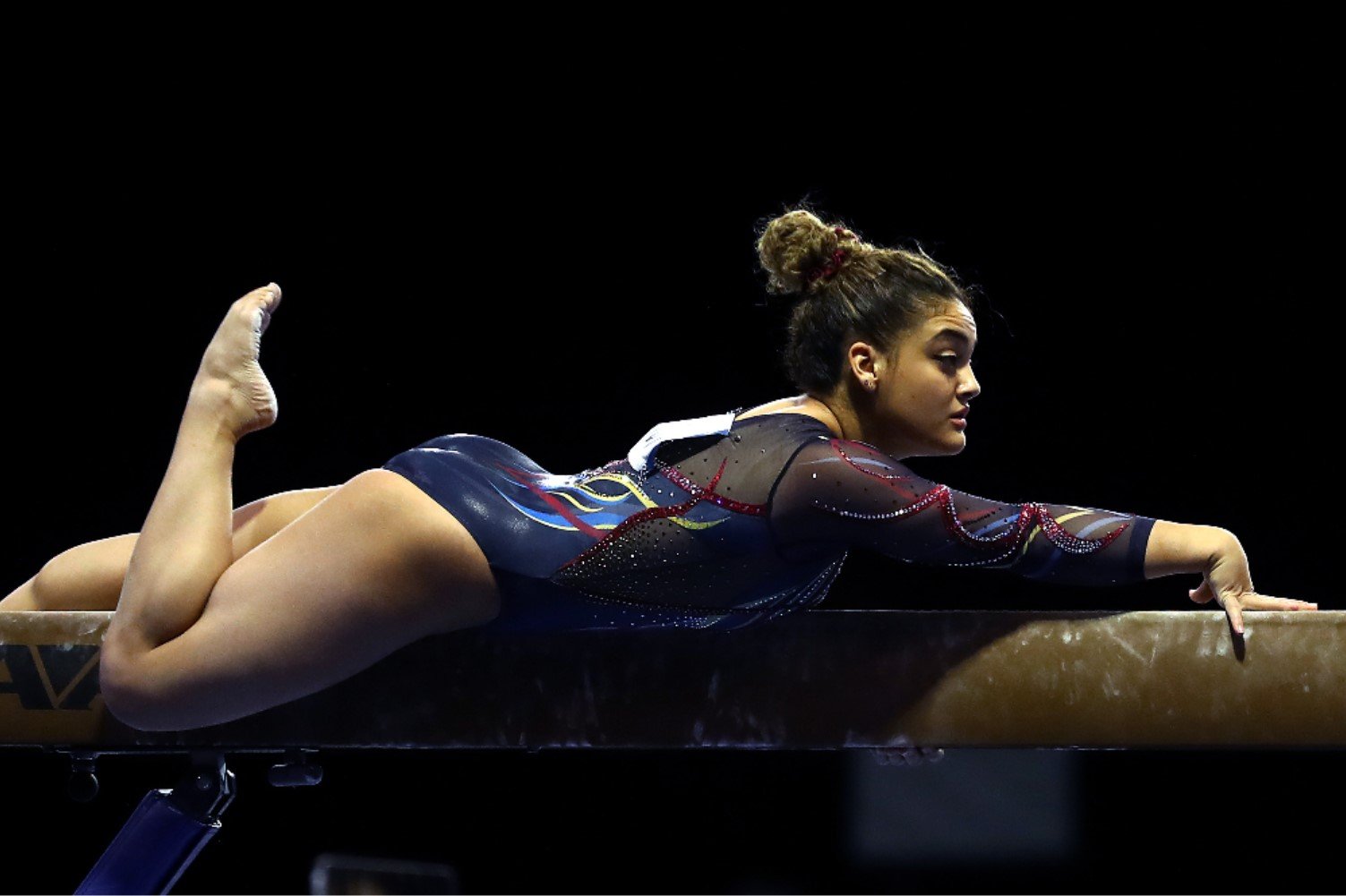School coaches in previous decades haven’t always been the best at choosing the correct phrase to motivate their students. Unfortunately, this led to a lot of “toxic coaching,” resulting in feelings of discomfort for many young students.
The comments made by toxic coaches can have devastating effects on women later in life who suffer from lower self-esteem, body image issues, and a lack of confidence. All of which results in a lengthy unlearning process.
Olympian Speaks about Effects of Toxic Coaching

Popular American Olympic gymnast Laurie Hernandez recently spoke about such an experience during an interview with POPSUGAR.
“One that comes to mind is being called ‘boxy’ during my pubescent years. I remember not thinking anything of my body until I heard this. Unfortunately, to this day, it’s something I tend to catch myself thinking when I look in the mirror,” said Hernandez.
Coach Compares Two Young Students

POPSUGAR reached out to the public to inquire if anyone else had experienced any kind of toxic coaching during their school years. Alyssa Larsen from Tampa, Florida, reveals she’s been in a similar situation.
Alyssa had been practicing as a ballerina when, one day, her coach decided to place her at the front of the room beside another student and compare their bodies.
Uneasy Experience for the Young Ballerina

Alyssa explained she was much shorter than her classmate, a superb dancer with the perfect legs for a ballerina.
She went on to say the coach explained her body as such: “See how Alyssa has that stalkier build not made for ballet, and her movements are heavier. And see how this girl has the body type for ballet, and it looks like she’s walking on water.”
Unfortunate Effects of Toxic Coaching

Unfortunately for Alyssa, the experience would ultimately discourage her from eventually trying out for the college dance team in later life.
While Hernandez was able to move past the toxic coaching to some degree and have a successful career in gymnastics, she spent years trying to unlearn the toxic narratives embedded in the minds of her coach.
Toxic Comments Becoming a Major Problem

According to Nicole LaVoi, Ph.D., the director of the Tucker Center for Research on Girls and Women, “Comments made by coaches can impact self-perceptions, confidence, body image, motivation, self-esteem, stress, anxiety, and more.”
The research is relatively clear: such comments made during pivotal moments of children’s and teenagers’ lives have lasting effects on women’s mentality as they grow older.
Younger Children’s Primary Social Influences

Dr. LaVoi claims, “Girls’ perceived competence, or how she thinks another [person] thinks about her, is the biggest predictor of staying in the sport and continuing fitness.”
She explains this is why coaches play such a pivotal role: “For girls 11 to 17, coaches — and other significant adults and peers — are the primary social influences.”
Not all Coaches Bring Forth Negative Experiences

Morgan King is a prime example of not all coaches leaving their students with a negative experience that affects their mentality in later life.
Speaking with POPSUGAR, the 25-year-old from New Jersey said she has many fond memories of playing soccer in school under a great coach who taught them to have fun.
The Good and the Bad Coaches

While King’s time in school was full of empowering and positive experiences, she also suffered like Hernandez and Alyssa at the hands of a few toxic coaches.
However, she claims her earlier experiences played a significant role in ensuring the negative coaches didn’t drag her down.
The Coaches with a Lasting Effect

According to Dr. LaVoi, she’s experienced that students fondly remember the coaches who persuade younger athletes to have fun and try to compete at a level they’re comfortable with.
This kind of teaching leaves students with a last impact that can help teach them there’s no need to compare themselves against another. She finished by saying it’s best to “focus on what you can control, improve, and grow in comparison to yourself.”
Changing Mentality in Coaches

The work of Dr. LaVoi has played a considerable role in slowly changing the idea of what a coach should resemble. They should no longer be portrayed as old grumpy men or failed athletes. They are motivating and caring teachers who care about their students’ mentality.
“I think the best thing coaches can do for an athlete’s body confidence is to remind them and show them what their bodies can do, rather than focus on how they look,” wrote Dr. LaVoi.
Dr LaVoi Relates to Those Struggling

While the idea of a coach is slowly evolving, those who have been subject to toxic abuse in the past may still struggle. Yet, Dr LaVoi claims she knows what it’s like and continues to help all those struggling.
“I dropped out of basketball because the coach told me I had ‘Herschel Walker thighs’ — which, as a young girl, was not a compliment that made me feel good about my body; it reinforced dominant narratives about how a girl’s body ‘should’ look,” said Dr LaVoi.








































